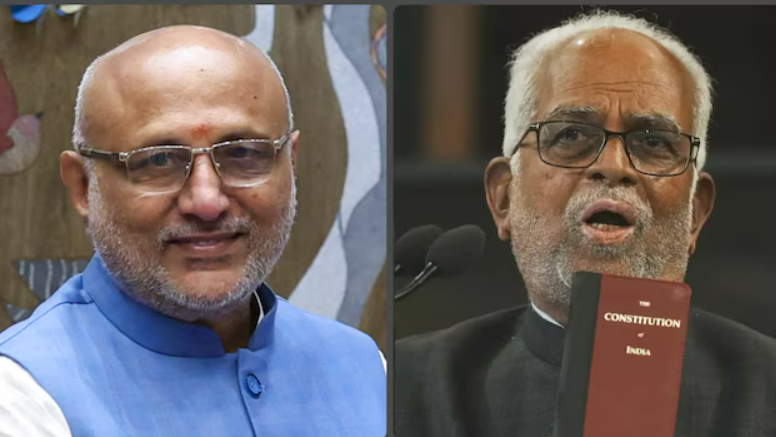
The Vice-Presidential election in India has taken an intriguing turn, with 96% polling recorded by 3 p.m. and several prominent regional parties choosing to remain neutral. The development has set off a wave of political commentary, with the Opposition calling it a major embarrassment for the BJP.
Polling Dynamics
The high level of participation underscored the seriousness with which political camps approached the election. Almost all MPs exercised their franchise, reflecting a sense of responsibility toward one of the highest constitutional offices.
The enthusiasm, however, was tempered by the realization that the Vice-Presidential contest is less about immediate governance and more about the long-term balance of power in Parliament.
Neutrality as a Political Signal
The BJD, BRS, and Akali Dal emerged as central players, not because of their votes, but because of their neutrality. Their decision to sit out the race shocked the BJP, which has historically relied on these parties for support during key parliamentary battles.
The Opposition capitalized on this, claiming that the silence of these allies revealed a lack of faith in the ruling coalition. Social media was abuzz with debates over whether neutrality should be read as quiet dissent.
BJP’s Position
Despite the setback, BJP leaders expressed confidence, pointing to their numerical majority. Yet, political observers argue that the party’s image as an unchallenged powerhouse has taken a hit. Allies withholding support in a relatively non-controversial election suggests an erosion of trust, they noted.
The ruling party attempted to frame the neutrality as irrelevant to the outcome, but the Opposition has used it to highlight deeper political shifts.
Opposition’s Leverage
For the INDIA bloc, the development provides an opportunity to showcase its ability to corner the BJP. Leaders argued that even when they lack the numbers, their narrative is finding resonance among regional players. Some suggested that the Opposition must now work harder to build formal partnerships with parties that are signaling dissatisfaction with the ruling coalition.
Symbolism of the Vice President’s Role
While the Vice-President is often seen as a ceremonial figure, their role as the presiding officer of the Rajya Sabha makes them a crucial arbiter during contentious debates. This makes the election a test of parliamentary influence, not just constitutional duty.
Broader Implications
The neutrality of regional parties underlines a key theme in Indian politics: the central role of federal players in shaping national narratives. Their stance may not change the arithmetic of today’s contest, but it sets the stage for negotiations in the run-up to state and national elections.
Analysts predict that if such patterns continue, the BJP could find itself increasingly isolated, even as it retains a parliamentary majority. Conversely, the Opposition could use these symbolic victories to present itself as the nucleus of a larger coalition.
Political Climate Moving Forward
The Vice-Presidential election may end with a predictable outcome, but its subtext reveals much about the current political climate. The BJP faces growing scrutiny from allies who prefer neutrality over open support. For the Opposition, the challenge remains converting symbolic gestures into tangible political strength.
